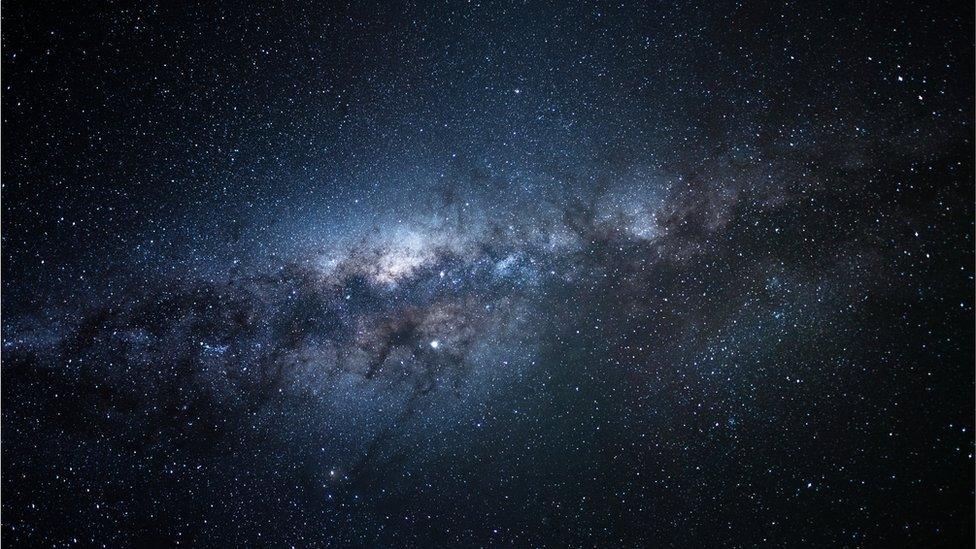The 'zombie galaxies' producing cosmic dust to form planets
- Published
- comments
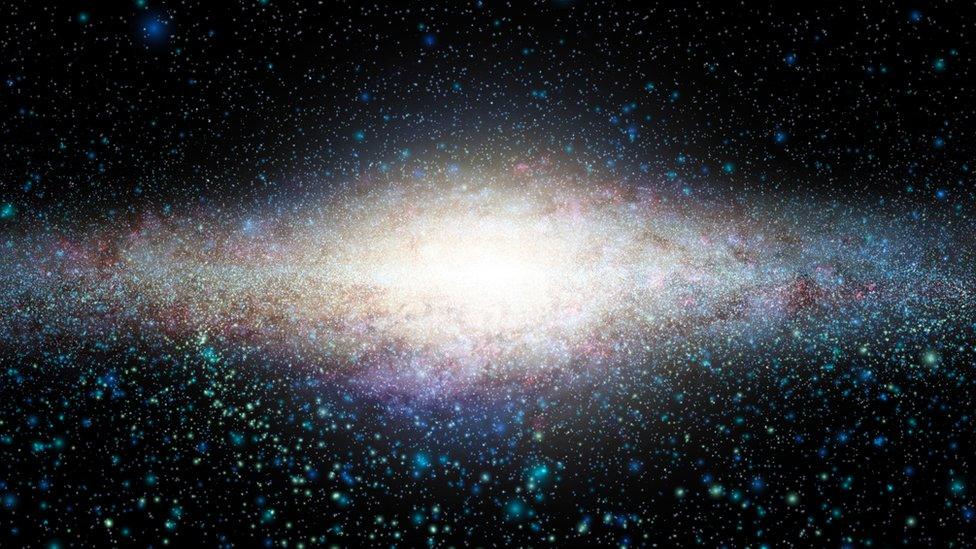
Scientists think that stars that explode in so-called 'zombie' galaxies produce cosmic dust that could help to form planets or even create life.
So what is a zombie galaxy?
Just like the Halloween monster, these galaxies are described as 'dead', and often eat-up material from other smaller galaxies they collide with to keep going.
Other galaxies that aren't dead and are considered to be 'alive' use material such as hydrogen gas, found within the galaxy itself, to make new stars.
One of the ways they do this is when old stars die they eject huge amounts of gasses and materials back out into space in an event known as a supernova. All that gas and material is then recycled, coming together to form new stars and planets in that galaxy.
But in zombie galaxies, old stars lack the energy to explode in huge supernovas.
So when Cardiff University researchers found a zombie galaxy full, with lots of material in it, it left them wondering why.
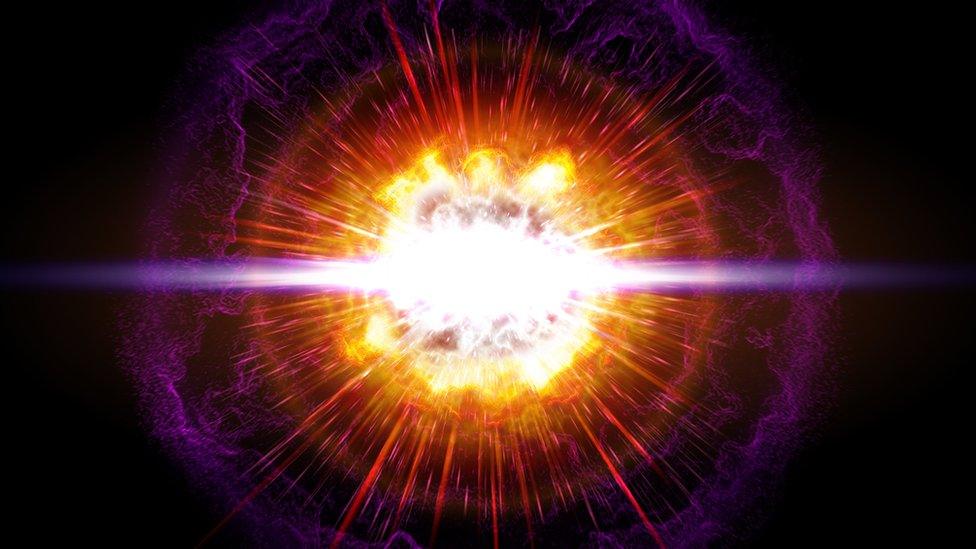
When a star explodes in an event known as a supernova, it ejects material out into space
What are zombie galaxies like?
Unlike the spiral shape of our Milky Way galaxy, zombie galaxies are elliptical and oval in shape.
During their research, the experts studied the explosion of a low energy star within a elliptical galaxy more than 300 million light years away.
The team used Nasa's space-based telescopes and ground observatories in China, South America, and Australia to study the explosion over three years.
Data showed that light from the explosion grew dimmer over time, suggesting the newly formed dust was starting to screen out its glow. Meanwhile the infrared glow of dust grew brighter.
Stars like our own Sun don't explode in a supernova. It's simply not massive enough. In about five billion years, when it's used up all its hydrogen fuel, our Sun will cool down and grow in size, becoming what is known as a red giant.
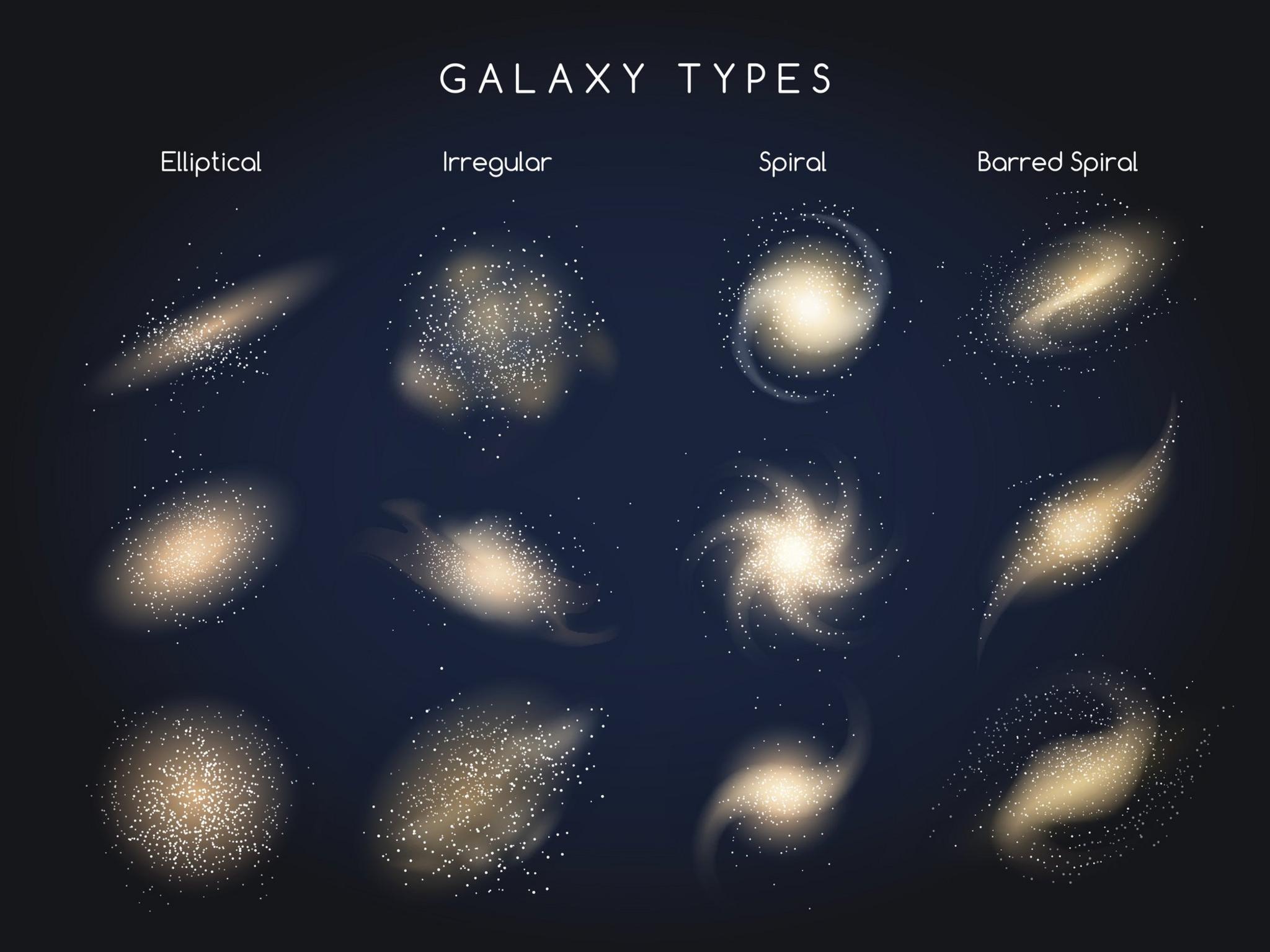
Galaxy: A system of millions or billions of stars, gas and dust, held together by gravitational pull. Our galaxy is called the Milky Way. Supernova: A huge explosion of a star. There are different types of supernova. One type, called a 'core-collapse', happens during the last stage of the life of massive stars that are at least eight times the size of our Sun.
The star the experts were observing was in a binary system, meaning it has two suns.
The team discovered that, when the one star exploded, the shock wave crashed into material that had been ejected into space by itself and its sister star, causing dust to form.
These pieces of dust and gas are called planetesimals, which over time clump together to create new worlds.
Until now scientists had been focussing on large, powerful supernovas when studying the cosmic dust that exploding stars produce.
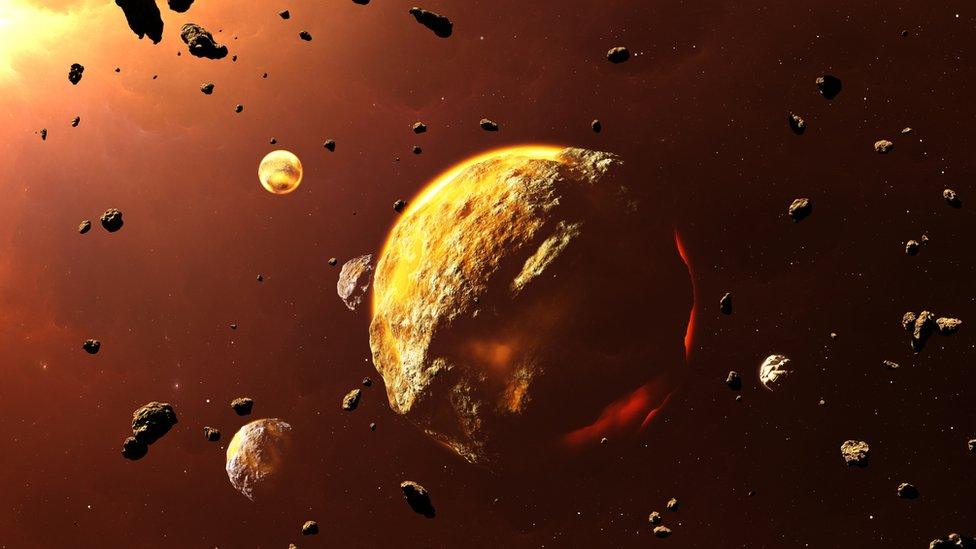
Cosmic dust clumps together to form new worlds.
Prof Haley Gomez, Head of Cardiff University's School of Physics and Astronomy, said: "Sometimes called red and dead or zombie galaxies, ellipticals are different to spirals like the Milky Way - they are made up of swarms of stars and they do not have core-collapse explosions - and yet Cardiff astronomers discovered a whole host that were extremely dusty.
"Our new study shows that only 1,041 days after the explosion, a huge amount of cosmic dust was formed."
The experts suggest that a specific set of circumstances were needed for the the cosmic dust to form.
"Our study shows that the explosive material from the supernova needs to interact with a companion, in this case a younger, slightly more massive star in order to create a lot of dust," says Prof Gomez.
Meanwhile Prof Andy Howell from Las Cumbres Observatory and the University of California Santa Barbara added that: "It is exciting to understand another link in the circle of life and death in the universe."
- Published26 September 2023
